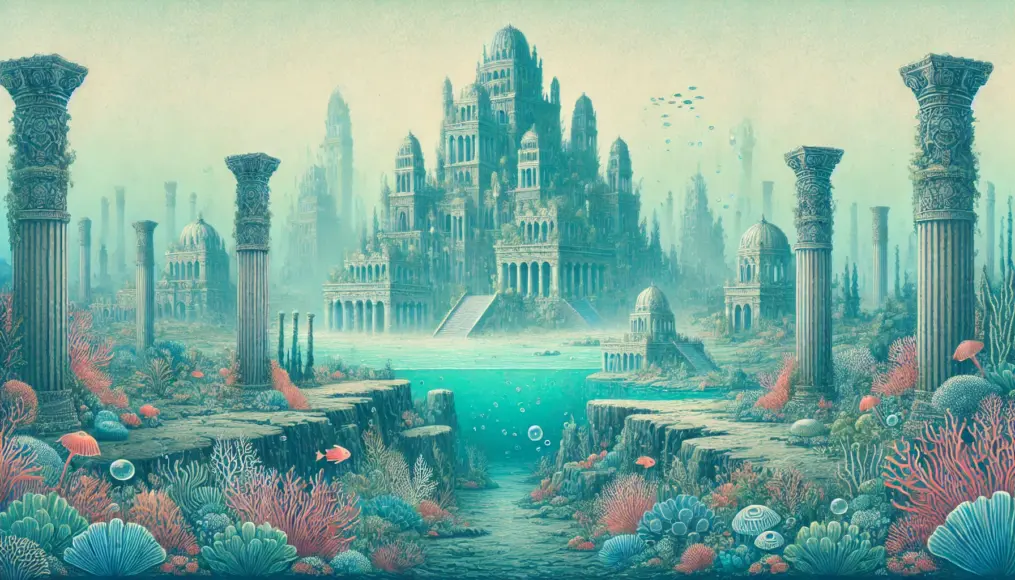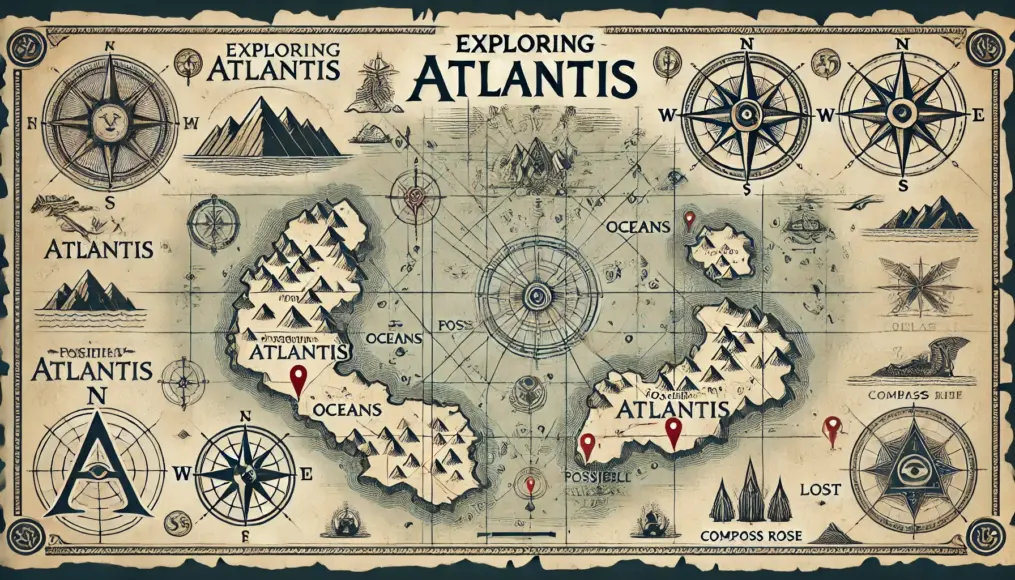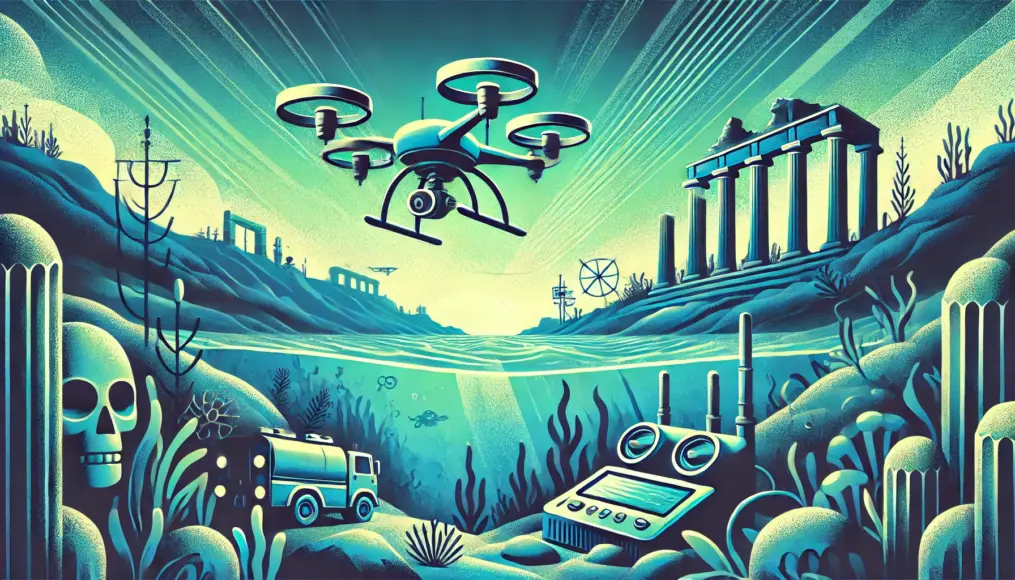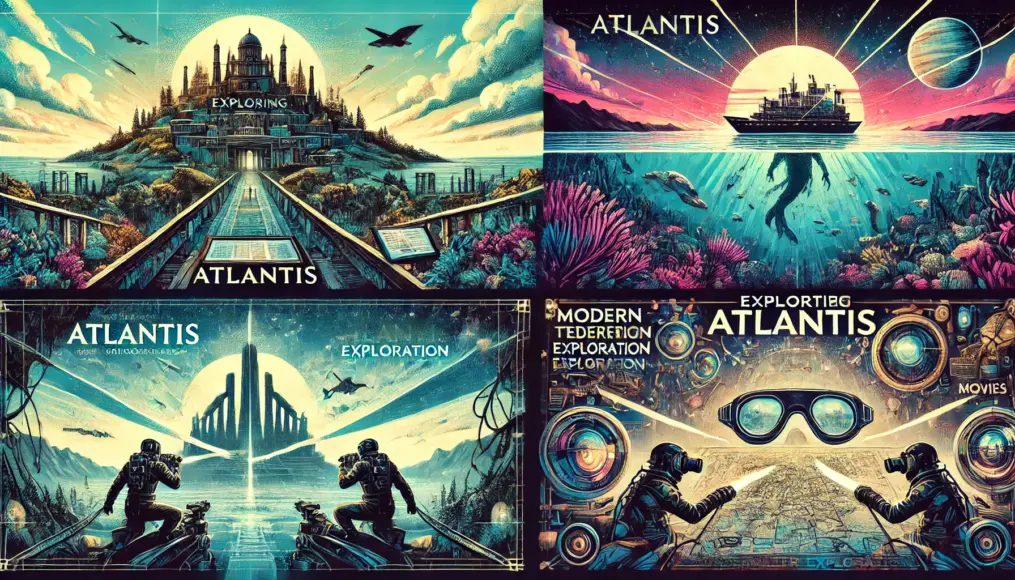Atlantis.
This lost city was first described by the ancient Greek philosopher Plato and has since become a timeless subject of exploration.
Was Atlantis real, or is it merely a myth?
Here, we delve into the mysteries of Atlantis and the discoveries made about it so far.
The Origin of the Atlantis Legend

The first mention of Atlantis appears in the works of Plato, specifically in “Timaeus” and “Critias”, written around the 4th century BCE.
Plato described Atlantis as a “great and prosperous city” that was swallowed by the sea overnight due to a catastrophic disaster.
- Plato’s Description
Atlantis was depicted as having advanced technology and culture far beyond that of other civilizations at the time.
It was described as a city of grand architecture, rich natural resources, and a powerful military. - Catastrophe and Collapse
According to Plato, Atlantis sank into the sea after incurring the wrath of the gods.
This sudden destruction adds to the mystique surrounding the lost city.
Global Searches for Atlantis

Believing in the existence of Atlantis, explorers have searched all over the world for the lost city, with theories placing it everywhere from the Mediterranean to the Caribbean.
- Mediterranean Theory
One popular theory places Atlantis in the Mediterranean region.
The area around Santorini is a particular focus, as it shows signs of a massive volcanic eruption that aligns with the story of Atlantis’s sudden demise. - Atlantic Ocean Theory
Others believe Atlantis lies in the Atlantic Ocean.
This theory has led explorers to investigate areas near the American coast, the Caribbean, and even the Bermuda Triangle in search of clues.
Modern Science and the Search for Atlantis

With the use of modern technology, the search for Atlantis has advanced significantly.
Techniques like sonar scanning and satellite imagery continue to reveal ancient remains that could be related to lost civilizations.
- Sonar Scanning
Sonar technology is used to create detailed maps of the ocean floor in hopes of locating Atlantis.
Although many searches have been conducted, conclusive evidence remains elusive. - Satellite Imagery
Some explorers claim to have found terrain resembling Atlantis through satellite imagery.
These images have revealed mysterious underwater structures, though no definitive proof of Atlantis has been discovered.
The Influence of the Atlantis Legend on Modern Culture

The legend of Atlantis frequently appears in films, literature, and games as an enduring theme.
This story continues to inspire people’s sense of adventure, leading to new works of fiction.
- Films and Literature
Countless movies and books have been inspired by Atlantis, keeping the allure of this lost city alive.
The theme of a “lost city” appeals to people’s curiosity and fascination with mystery. - Modern Exploration and Archaeology
The Atlantis legend influences modern adventurers and archaeologists alike.
The act of exploring unknown ruins is driven by the same adventurous spirit embodied in the search for Atlantis.
Summary
- Atlantis is a lost city first described by Plato, with many debates about its existence
- Searches for Atlantis have been conducted worldwide, using modern technologies like sonar scanning and satellite imagery
- The legend has inspired countless cultural works, fueling a sense of adventure and curiosity
The story of Atlantis symbolizes humanity’s instinct to explore the unknown.
Did Atlantis really exist, or will it remain a timeless mystery?
As you explore this legend, let your imagination wander to the endless possibilities that await discovery.




Comment